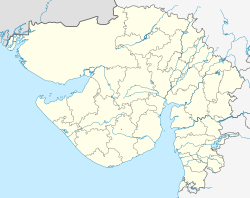This article needs additional citations for verification .(May 2016) |
Bantva | |
|---|---|
town | |
| Coordinates: 21°29′21″N70°04′36″E / 21.48917°N 70.07667°E | |
| Country | |
| State | Gujarat |
| District | Junagadh |
| Population (2001) | |
• Total | 15,216 |
| Languages | |
| • Official | Gujarati |
| Time zone | UTC+5:30 (IST) |
| Nearest city | Manavadar |
Bantva is a little town in Saurashtra region of the state of Gujarat in India.


